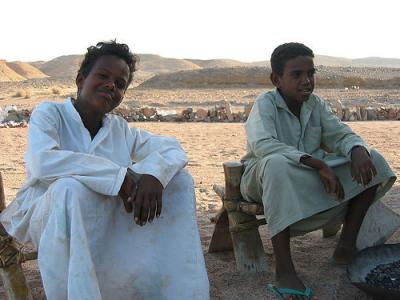
Israel plans to forcibly transfer 40,000 Bedouin citizens

A new Israeli proposal that would forcibly transfer more than 40,000 Bedouin citizens into government-planned townships in the Negev (Naqab) desert has raised the ire of Bedouin communities and their supporters, who say the plan is both discriminatory and ignores the Bedouins' historic connection to the land, Electronic Intifada reports.
Dr. Awad Abu Freih, the spokesperson of al-Araqib, one of approximately 45 so-called unrecognized villages in the Negev, told Electronic Intifada: "Now we are very angry and we reject this plan. We will not accept it. We are working all the time to explain to our communities that this plan is very dangerous, it's not good for us and not good for the Jews, not good for the state, not good for anybody."
The Prawer Report—named for Ehud Prawer, director of Planning Policy in Prime Minister Benjamin Netanyahu’s office—is an implementation plan of the findings of another Israeli governmental report released in 2008. Known as the Goldberg Commission, the 2008 report examined the issue of so-called "Bedouin settlement" issues in the Negev. It found that "there is no justification for the state to treat the Bedouin residents in these communities differently from the way it treats the rest of the citizens of the state" and suggested legalizing most the unrecognized Bedouin villages in the Negev.
Unrecognized Bedouin villages don’t receive basic services such as water and electricity from the state. An estimated 90,000 persons—nearly half of the total Bedouin population of the Negev—currently live in unrecognized villages.
Despite its mandate, the Prawer Report departs from the recommendations of the Goldberg Commission. Instead of promoting recognition, it suggests relocating 40% of the Bedouin population now living in unrecognized villages and concentrating them into the seven Israeli government-planned Bedouin townships.
These townships have little economic prospect, and are largely viewed as dormitory towns: residents only sleep there and are forced to go outside of the town for nearly everything else they need.
The Israeli newspaper Haaretz reported June 2 that the amount of compensation Bedouin citizens will receive in exchange for their lands will be reduced as time passes, and "after a five-year period, land which has not been the subject of the claim process will be registered as belonging to the state."
While Bedouin citizens make up 30% of the population in the Negev, they occupy only 2% of the area's total land. Even if all the Bedouins' land claims were accepted by the state, they would still control only 5.4% of the Negev's total land.
An Israeli government vote on the Prawer Report scheduled for early June was postponed due to pressure from right-wing parties, who say the plan gives too much to the Bedouin. If approved, Israel hopes to implement the Prawer Report within a five-year period.
Dr. Thabet Abu Ras, a professor of Political Geography at Ben-Gurion University of the Negev and the director of the Naqab Project for Adalah, the Legal Center for Arab Minority Rights in Israel, protests that Bedouin citizens were never consulted about the Prawer Report.
"Nobody asked the Bedouin what they want, and really the whole Prawer Report is against the desires of the Bedouins. It treats the Bedouins as unequal citizens," Abu Ras told Electronic Intifada. "I think the Bedouins have been invisible people in the last sixty years. Unfortunately, they continue to be invisible citizens of the State of Israel after 63 years."
A new umbrella organization called "Recognition Now" has been recently formed to fight for Bedouin land and civil rights in the Negev and coordinate between the various human rights groups and activists working on these issues.
"We will be in all the tribes, all the villages and we will call all the world to help us. Maybe we will call the [United Nations] to defend us from the government actions," said Abu Freih, coordinator of the campaign.
"I want [people] to know that Israel is not a democratic state. It's very far from that. It's a very racist state and we know that there’s ethnic cleansing. It's happening now, it’s not in the history only," he said. "We want help to defend [ourselves] from the actions of the military and police." (Jillian Kestler-D'Amours for Electronic Intifada, June 16)

